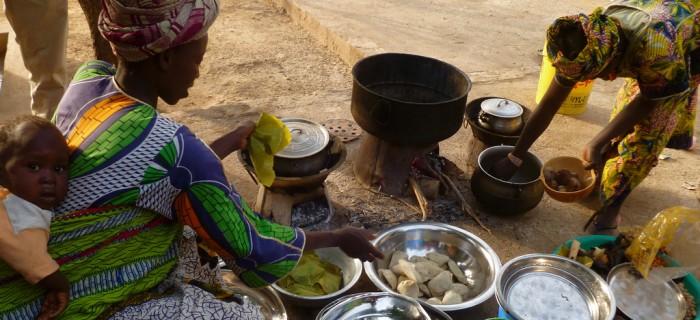New Alliance for Food Security and Nutrition will benefit corporations and endanger Africa’s small farmers
On the eve of the G7 meeting in Brussels and two months before President Obama welcomes African leaders to a summit aimed at boosting trade and investment relations, a new report by Terra Nuova and the Transnational Institute unmasks the corporate push to conquer a continent that the World Bank has termed “the last frontier in global food and agriculture markets.”
The new report, launched today, reveals the many ways in which global corporations are influencing development programmes for Africa. Their involvement and financial power has shaped “the New Alliance for Food Security and Nutrition” a new “co-operation framework” opening the door for investment that enriches private corporations and endangers small-scale farmers across Africa under the banner of “development”. However, African farmer and international civil society organisations are resisting at all levels, including globally in the Committee on World Food Security.
Download the full report: http://www.tni.org/briefing/new-alliance-food-security-and-nutrition
The report, “The New Alliance for Food Security and Nutrition: a coup for corporate capital?” argues that small-scale producers – the majority of the population – are already responsible for 80% of the food consumed in Africa and can meet the rising demand in Africa’s cities with proper support. Programmes like the New Alliance for Food Security and Nutrition, instead, are likely to push them off their land or lock them into global food supply chains that impoverish them further while enriching international corporations.
The New Alliance effectively undermines the fragile bases of democracy that the G8 governments rhetorically pat themselves on the back for defending.
The New Alliance for Food Security and Nutrition, a new “co-operation framework” launched at the 2012 G8 Summit in the US and boosted at the 2013 Summit in the UK, now covers 10 African countries and brings well over 100 companies to the table as donors, in addition to the G8 governments and the European Union. The stated aim of this initiative is “to accelerate responsible investment in African agriculture and lift 50 million people out of poverty by 2022”. The partnership includes commitments by African leaders to “refine policies in order to improve investment opportunities”. Private sector companies, meanwhile, “have collectively committed more than $3 billion to increase investments” while “donor partners [including the EU]…will support Africa’s potential for rapid and sustained agricultural growth, and ensure accountability”.
This paper traces how the New Alliance has emerged from a complex interaction between single corporations, philanthrocapitalist foundations, corporate private sector forums, bilateral and multilateral aid programmes and African authorities. It sheds light on the faulty rhetoric on which the New Alliance bases its claims to fight food insecurity and compares rhetoric to reality. The paper suggests that, as in the classic confidence trick, the benefits promised by the private sector and by donors evaporate when the “shell” is overturned, when critical farmers and their advocates attempt to determine the actual impacts of these programmes. What remains are policy changes that penalize small-scale producers and reward corporations by privatizing the collective resources on which rural peoples’ livelihoods depend and revising seed laws to promote corporations’ products and limit farmers’ rights to use their own seeds. Corporate private sector investments are protected, while those of farmers – which make up 90% of all investments in agriculture according to the FAO – go unprotected.
Stay in the loop with Food First!
Get our independent analysis, research, and other publications you care about to your inbox for free!
Sign up today!These changes are being enacted without any process of consultation with national stakeholders. Since the small-scale producers who are adversely affected by these changes constitute the majority of the population of the countries concerned, the New Alliance is in effect undermining the fragile bases of democracy that the G8 governments rhetorically pat themselves on the back for defending.
Finally, this paper documents the counter movements underway in Africa and in the recently reformed global Committee on World Food Security (CFS). The New Alliance has been heavily criticized by civil society for promoting the interests of the corporations rather than those of African small-scale food producers and citizens. The CFS is currently negotiating principles aimed at ensuring that investment in agriculture promotes food security, the right to food, and smallholders’ livelihoods rather than corporate profits.
“The Alliance that could really vanquish hunger would be one between African governments and their own small-scale producers” said Nora McKeon, the author of the report. “A combination of pressure from above – as in the reformed CFS – and political pressure from below – from organized and articulate citizens – may well be the best way to get there.”



 Help Food First to continue growing an informed, transformative, and flourishing food movement.
Help Food First to continue growing an informed, transformative, and flourishing food movement.




